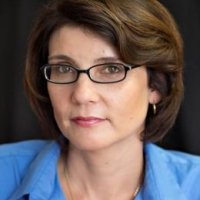The Other Great Game: The Opening of Korea and The Birth of Modern East Asia, 1876-1905
This summer, once again, the world’s attention was drawn to the Korean peninsula. Korea as the source of regional crisis and power politics in modern history has its roots in the latter decades of the 19th century that saw profound changes to the existing East Asian order. Historian of Korea and East Asia Sheila Miyoshi Jager will explore the “Other” Great Game in East Asia when China, Japan and Russia fought over the impoverished, but strategically important Korean peninsula. Korea became an enduring international security conundrum and the regional instability that ensued not only fractured the previous international harmony within the Confucian world, but provided Western countries with both the incentive and opportunity to intervene more vigorously in East Asian affairs. From this globalization of politics the modern East Asian order was born, with results that affect international relations in the region to this day.
Sheila Miyoshi Jager is Professor of East Asian Studies at Oberlin College. Her books include Brothers at War: The Unending Conflict in Korea, Ruptured Histories: War, Memory and the Post Cold War in Asia (with Rana Mitter), and Narratives of Nationbuilding in Korea: The Genealogy of Patriotism. Her current book project, The Other Great Game: The Opening of Korea and the Birth of Modern East Asia, is forthcoming from Harvard University Press. She is author of many articles and essays in both scholarly and popular publications, including the New York Times, Boston Globe, and, most recently, Politico Magazine.
The Washington History Seminar is co-chaired by Eric Arnesen (George Washington University) and Christian Ostermann (Woodrow Wilson Center) and is sponsored jointly by the National History Center of the American Historical Association and the Wilson Center's History and Public Policy Program. It meets weekly during the academic year. The seminar thanks the Society for Historians of American Foreign Relations and the George Washington University History Department for their support.
Speaker

Moderators


Professor of History, The George Washington University. Director, National History Center of the American Historical Association.
Hosted By

History and Public Policy Program
A leader in making key foreign policy records accessible and fostering informed scholarship, analysis, and discussion on international affairs, past and present. Read more


Indo-Pacific Program
The Indo-Pacific Program promotes policy debate and intellectual discussions on US interests in the Asia-Pacific as well as political, economic, security, and social issues relating to the world’s most populous and economically dynamic region. Read more


Hyundai Motor-Korea Foundation Center for Korean History and Public Policy
The Center for Korean History and Public Policy was established in 2015 with the generous support of the Hyundai Motor Company and the Korea Foundation to provide a coherent, long-term platform for improving historical understanding of Korea and informing the public policy debate on the Korean peninsula in the United States and beyond. Read more
